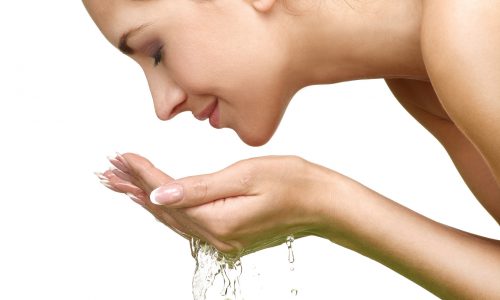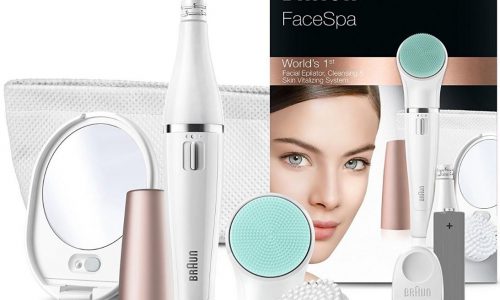Do you want to take better care of your skin? Do you suffer from hyperpigmentations, fatigued, and incorrectly cleansed skin that no longer is able to regenerate? You should fortify it with acids for the face. Learn all about chemical peels and how they work on the skin.
What is a chemical peel?
Chemical peels are a controlled process of removing one or more layers of the skin to stimulate elastin and collagen production. Its a form of exfoliator. Its task is to quickly remove dead skin cells and revitalize the epidermis. The procedure is simple and is based on the application of a chemical mix of exfoliating substances. The treatment is performed on the face but more and more, this exfoliation is made also on the neck, hands, cleavage, or back. A chemical peel is made to improve skin condition and you can reduce wrinkles with it as well as hyperpigmentations.
Currently, chemical peels are one of the most popular and least invasive treatments. Acids can be used not only in the beauty salon but also at home. You just need to get the right serum. As exfoliative substances are used, among many, glycolic acid, trichloroacetic acid, salicylic acid, lactic acid, or phenol.
What is acids action on the face?
Peels performed with acids exfoliate the epidermis layer, improve skin suppleness, hydration, and elasticity. Those perfectly smooth out the skin, making it soft in touch. Acids eliminate post-acne hyperpigmentations and can lessen scars. It is a great way to flatten wrinkles, even out skin tone and remove blackheads. What is more, a good chemical peel can lessen sebum secretion and tighten the pores. It also stimulates the skin to produce new cells and improves the production of collagen and elastin.
Which chemical peel will be best for you?
Meet the action of the most popular peels and match it to your skin type. You can ask your beautician for advice. You will find below the more detailed description of acids used for chemical peels.
TCA acid
TCA peel is a treatment made with the use of trichloroacetic acid. This exfoliator is recommended for thin and dry skin. The TCA acid exfoliation effect is intense. It is perfect for papulous and pustular acne and for the thin and dry skin. TCA eliminates old age callous, hyperpigmentation, and epidermis spots.
Mandelic acid
It’s an acid recommended for people with sensitive and couperose skin. It can be used also by people whose skin is prone to inflammations, wrinkles, and hyperpigmentations. Mandelic acid regulates sebum secretion, makes skin tone even, tightens the pores, and flattens scars. It is suitable for sensitive skin with hyperpigmentations and acne.
Salicylic acid
One of the most popular acids that you can easily use at home, e.g. as a night treatment (mostly in the form of a serum that you can use for 2 weeks). It’s perfect for mature and oily skin. It has an anti-inflammatory and antiseptic action. Salicylic acid perfectly speeds up healing of spots and irritations, but also stimulates collagen and elastin synthesis, while moisturizing and preventing excess skin roughness.
Ferulic acid
Perfect for all skin types and mostly for the skin with signs of aging. Ferulic acid is a strong antioxidant. It eliminates free radicals and restores skin with good and healthy color. The content of phloretin allows easier penetration of the skin by active ingredients. Ferulic acid allows you to retain the hydrolipid balance of the epidermis. This acid is perfect to use before big occasions or important meetings.
Glycolic acid
It’s obtained from sugar canes and is recommended for people with very dry skin. Glycolic acid has intense moisturizing action and supports dermis regeneration.
The skin of face post-treatment with acids
For the first few days after the treatment, your skin may be slightly red but it soon gets back to normal. If you use acids at home in a form of a serum, you should know that they are way gentler than the beauty treatment so you can easily do it for a longer time and the redness effect may not appear at all. After the at-home treatment, you should moisturize the skin and use sun protection on a daily basis – choose a cream with SPF 20 or higher.



Leave a Reply